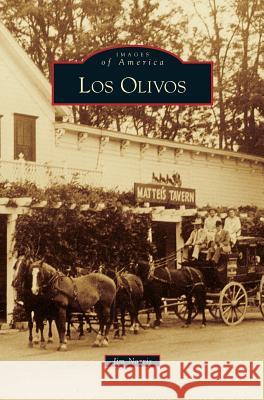Los Olivos » książka
Los Olivos
ISBN-13: 9781531635800 / Angielski / Twarda / 2008 / 130 str.
Los Olivos was named for central Santa Barbara County wine country's other small fruit. The local fascination for vineyards is fairly new, but Los Olivos has thrived as a community since not long after Native American days. Los Olivos grew important enough to local trade and travel to become the inland terminus of the narrow-gauge Pacific Coast Railway, which zigzagged southeasterly from Avila Beach. The town was platted in 1887 by the West Coast Land Company and the railroad's owners. The dry-farming of grain and cattle ranches eventually drove the local economy in the surrounding Santa Ynez River Valley. Today Los Olivos thrives as a way station and gateway for tourists enjoying the beauty of the valley, the Santa Ynez Mountains, Los Padres National Forest, and nearby attractions, including the Mission Santa Ines, wineries, Solvang, and Santa Barbara.
Los Olivos was named for central Santa Barbara County wine countrys other small fruit. The local fascination for vineyards is fairly new, but Los Olivos has thrived as a community since not long after Native American days. Los Olivos grew important enough to local trade and travel to become the inland terminus of the narrow-gauge Pacific Coast Railway, which zigzagged southeasterly from Avila Beach. The town was platted in 1887 by the West Coast Land Company and the railroads owners. The dry-farming of grain and cattle ranches eventually drove the local economy in the surrounding Santa Ynez River Valley. Today Los Olivos thrives as a way station and gateway for tourists enjoying the beauty of the valley, the Santa Ynez Mountains, Los Padres National Forest, and nearby attractions, including the Mission Santa Ines, wineries, Solvang, and Santa Barbara.











